Lab activities @MIME
MIME offers to enrolled students many diverse possibilities in the various lab facilities in the Department. Students will have the chance to dive in 3D augmented reality and multimedia applications, study the underwater communication world, optical fiber applications, or analyse Internet traffic in the newtorks lab.
Multimedia LAB
The Multimedia Lab is a multi-disciplinary research asset dealing with acquisition, transmission, and analysis of 2D and 3D multimedia signals.
Computer vision, Machine-Learning and communication technologies are combined to develop new ground-breaking solutions for different target applications, including 3D reconstruction of static and dynamic scenes, augmented- and mixed-reality systems, hand-gesture recognition, 3D object classification, semantic scene understanding and multimedia forensic analysis.
Photonics Lab
Photonics – the science of light – underpins the technologies of today and tomorrow’s telecommunications and sensing. Among the many photonic technologies, fiber optics is the most widely spread, with billions of kilometers of fiber installed around the world.
The photonics laboratory offers students the opportunity of learning, through experiments, about optical fiber communication and sensing, from the basics to the novelties of cutting-edge research.

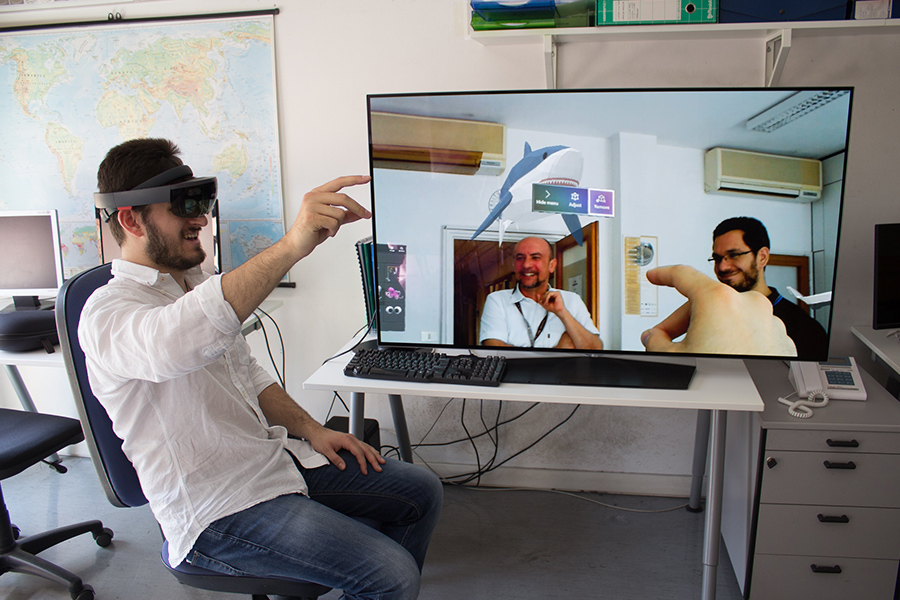
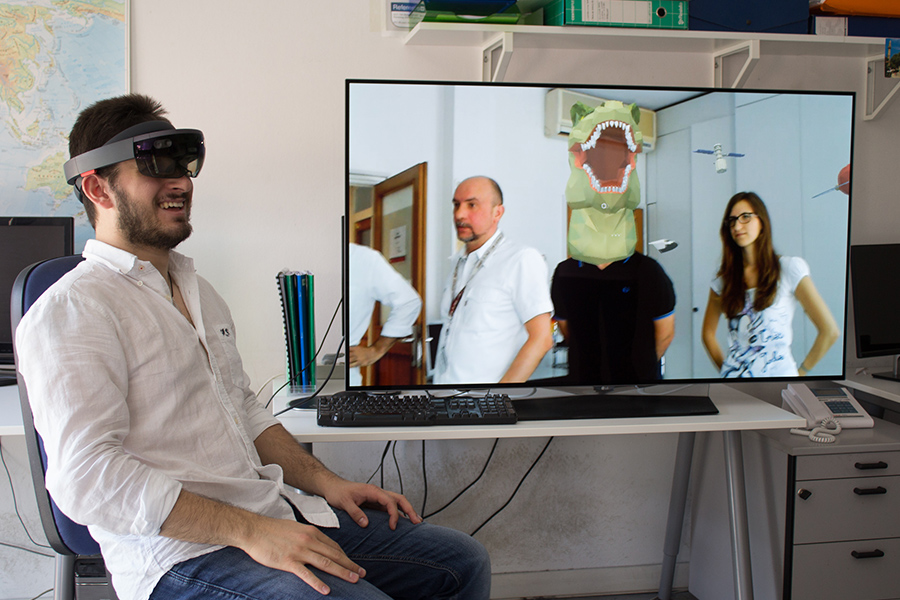
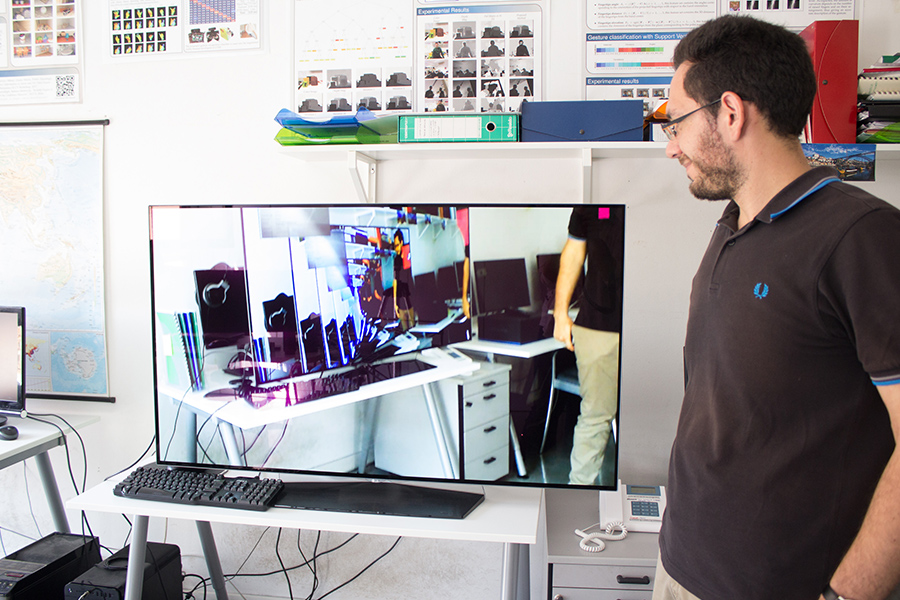
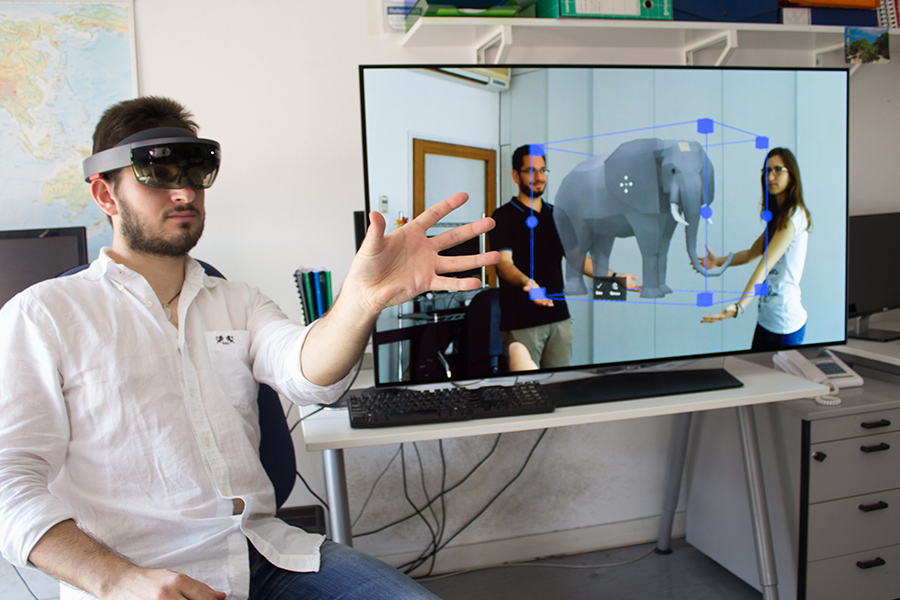
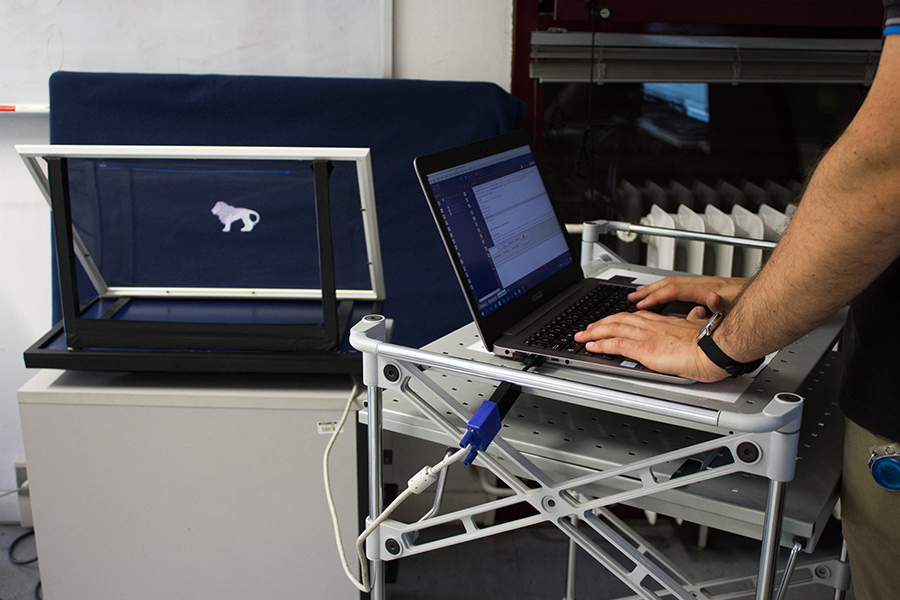
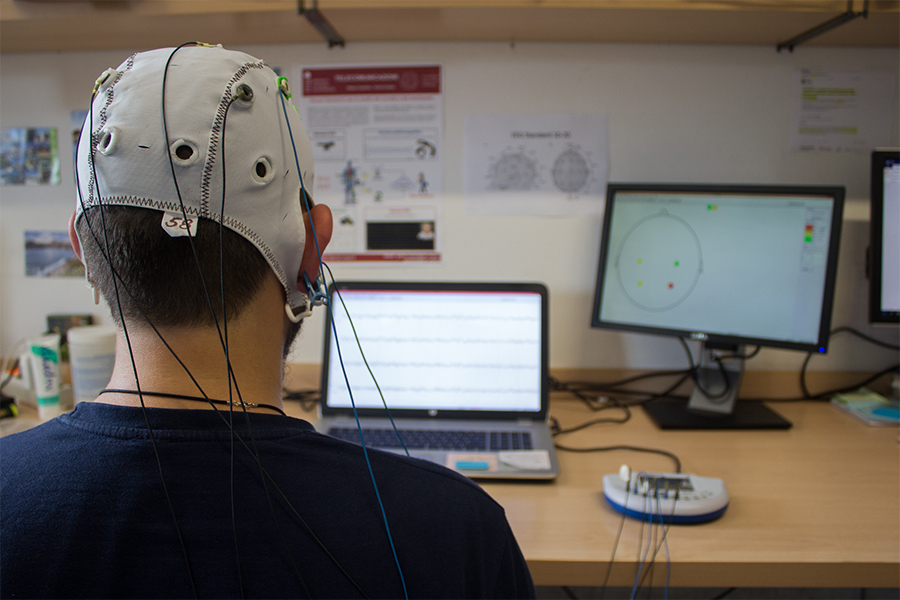
Networks Lab
The Networks Lab offers students a possibility to work with all the technology they need to practice or study.
Many computers, switches, wired or wireless professional routers, programmable boards, programmable sensor nodes are available for students to use, so they can learn how to assign IP addresses, configure routers and firewalls, analyze Internet traffic, and configure Web, mail, DNS and DHCP servers.
Here you have the chance to get familiar with cutting-edge networking technologies and paradigms, such as software-defined, wireless sensor and cognitive networks.
Human data analysis Lab
The human data analysis (HDA) lab offers students a number of practical projects to get acquainted with advanced Machine-Learning tools, with emphasis on deep convolutional networks and on their application to human data such as video, ECG, and inertial (mobility) signals.
Activities gradually develop from easy problem-solving tasks to complex identification tasks, ensuring solid understanding of Tensor Flow and Keras.
GNSS Lab
In the GNSS Lab, students can learn more, and have first-hand experience, of how to work satellite navigation systems.
From Matlab to Python to FPGA, you can exploit your programming expertise to build real world demonstrators.
Investigate the security of critical infrastructures: play the bad guy, the good guy, or even both.
Identify potential vulnerabilities and provide smart solutions!
Antennas Lab
“Always connected” has become a paradigm of our society, in which the smartphone is becoming an extension of ourselves.
Antenna systems are key to get connectivity to various applications everywhere.
In the antenna laboratory, students can put to full use what they learned in class about wireless propagation, engaging in tasks about antennas designing with professional software tools, and to test their working with high-tech equipment
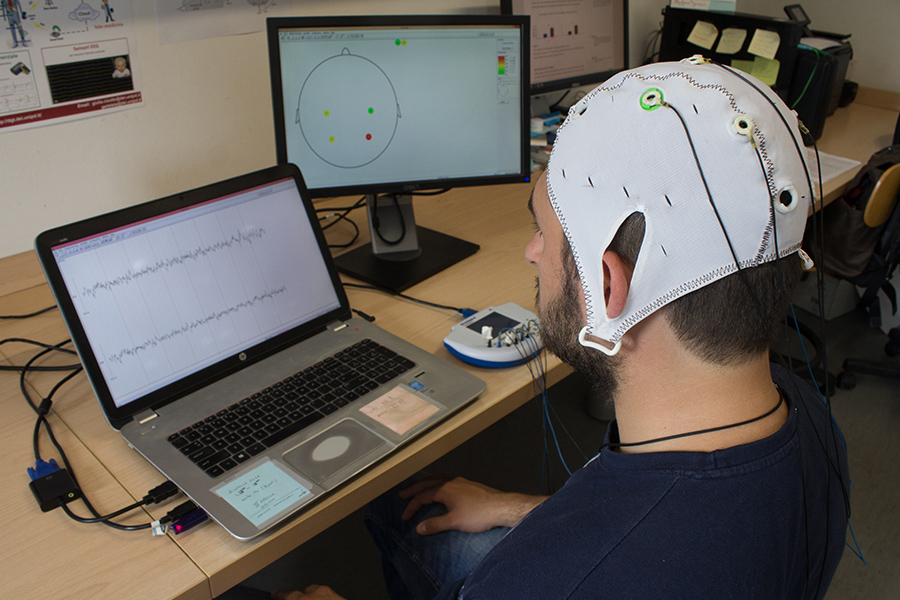
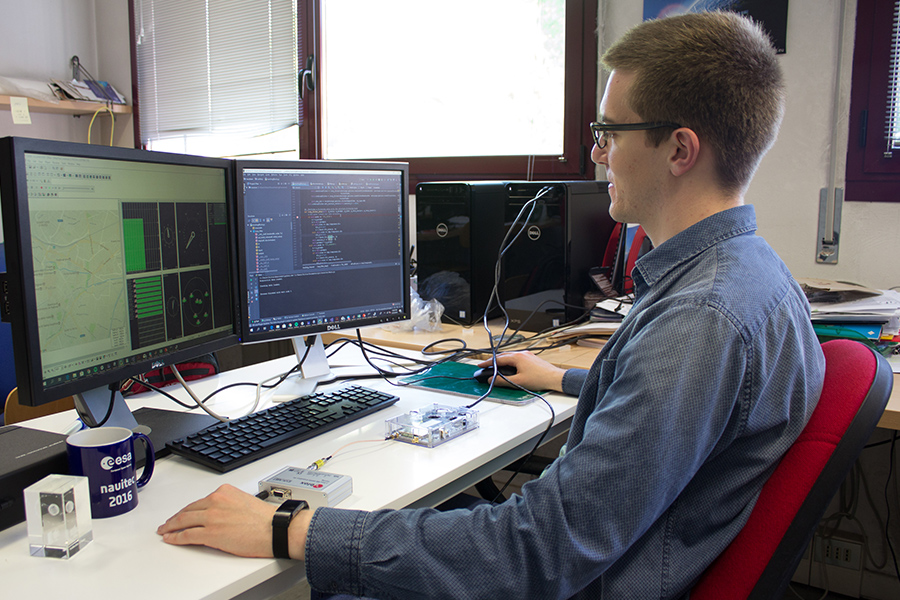
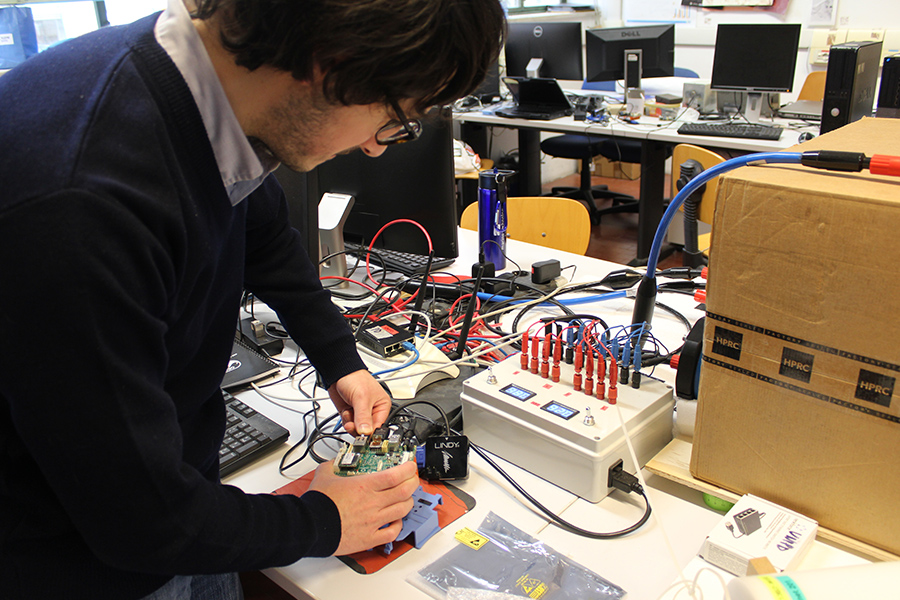
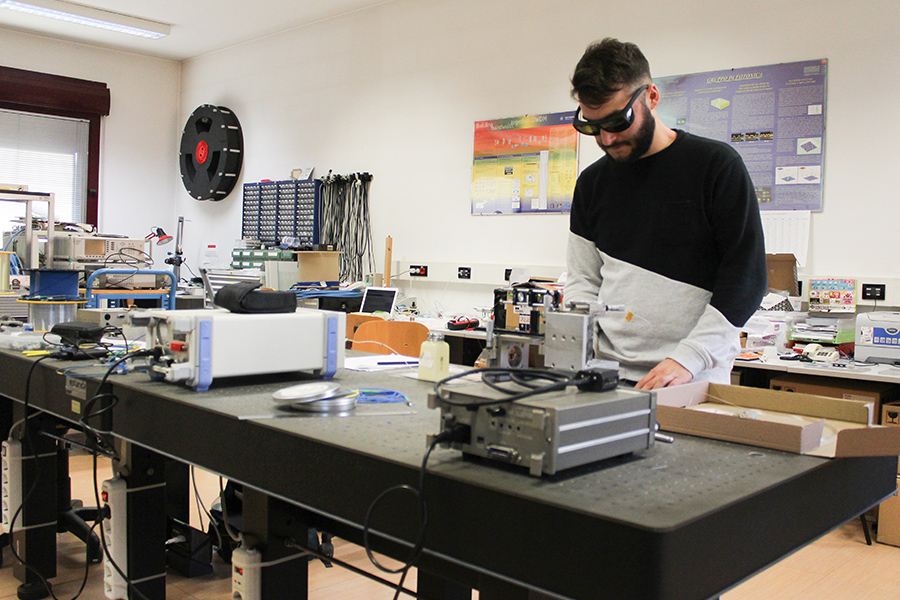
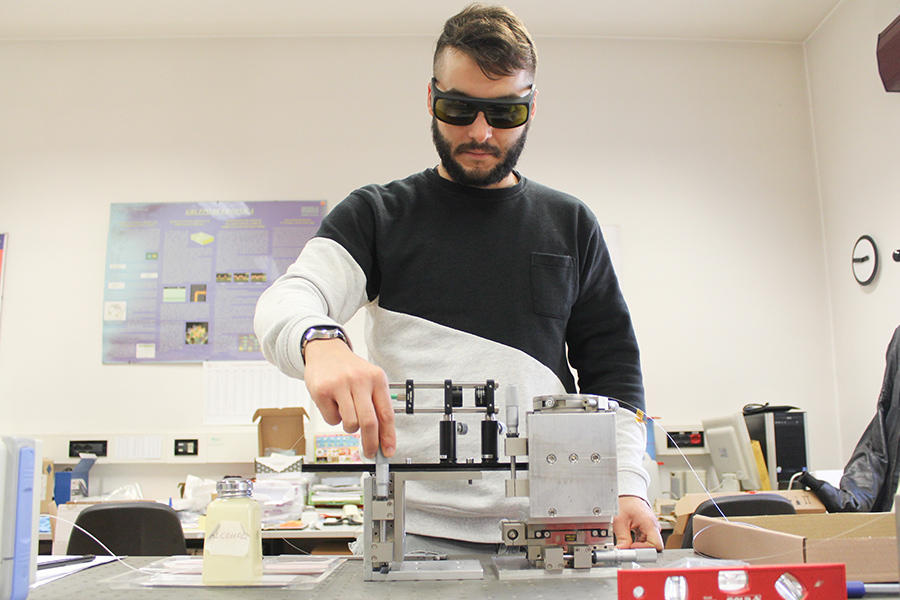
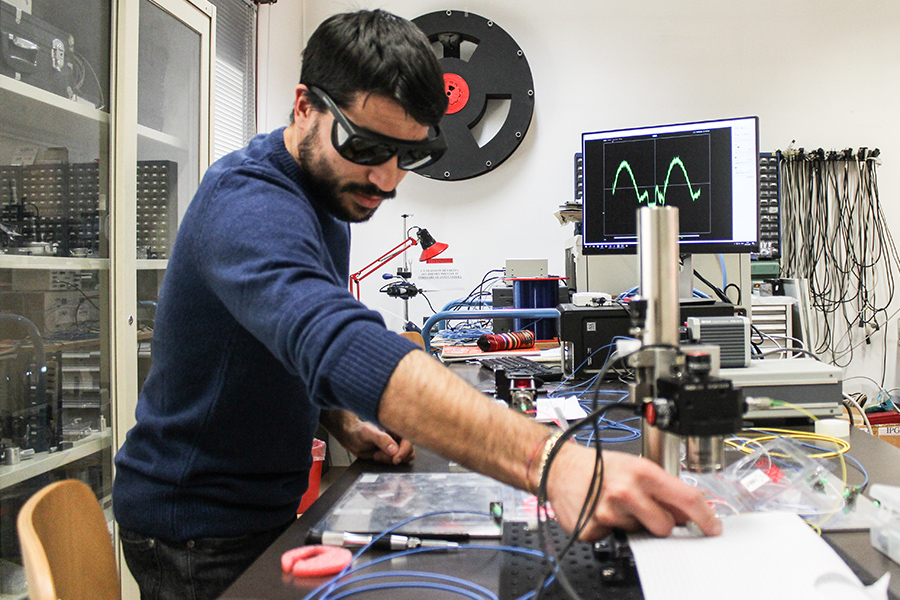
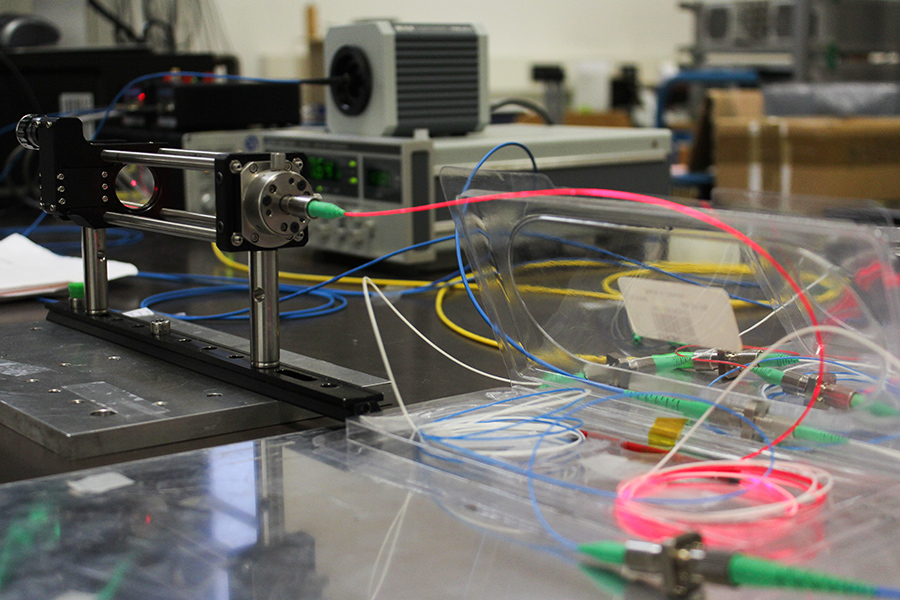
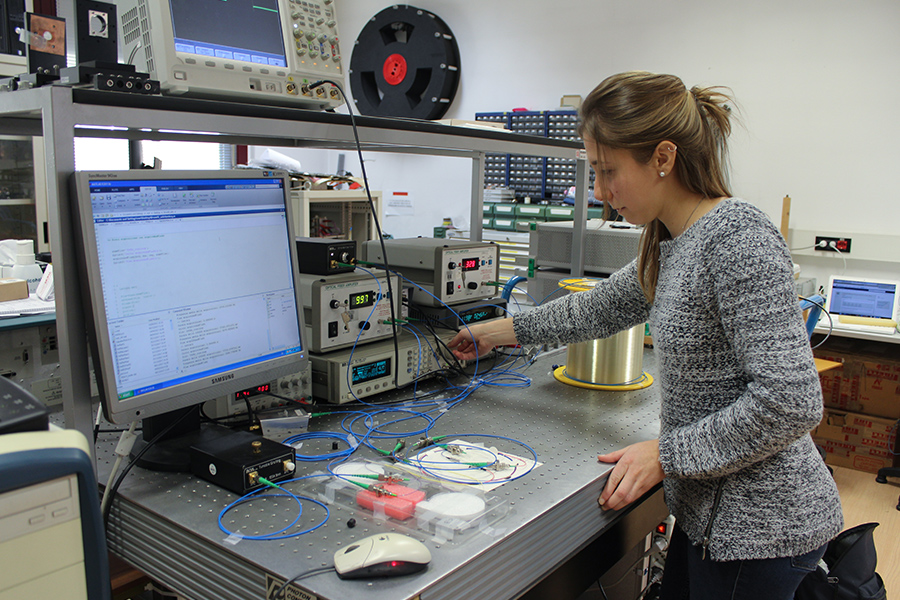
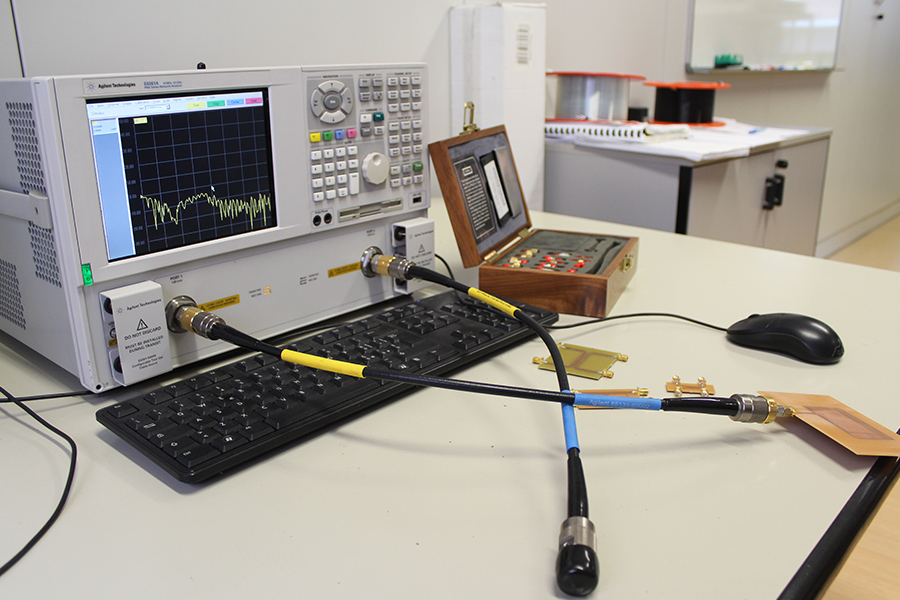
Neurosignals Lab
In the Neurosignals Lab, students will have the possibility to investigate the workings of the human brain, in collaboration with medical doctors.
Through cross-frequency brain coupling quantification, cortico-muscular coherence analysis and Machine-Learning techniques is it possible to develop new effective treatments for, e.g., neuro-motor pathologies, such as Brain-Computer Interfaces for motor rehabilitation.
This gives students a change to put to use what they learned in real-life situations for applying Machine-Learning to the healthcare sector.
Underwater Lab
Today’s technology grants humankind a deeper understanding of the underwater world; this is actively studied in our lab on underwater communications and networking, where solutions for subsea exploration, seismic activities, oil and gas, and marine life are designed, evaluated, and tested at sea.
IoT Lab
The Internet-of-Things (IoT) is one of the next frontiers of information technologies which, with billions of nodes distributed everywhere, shows great promise to improve human quality of life.
The fascinating paradigms of e-health, virtual and augmented reality, everything-connected devices, are expected to deeply impact the human way of life.
Protocols and solutions towards this vision will be designed, implemented, and tested in the new IoT lab, built in 2018, and set up with all the newest technological innovations so as to give students a chance to practice.


